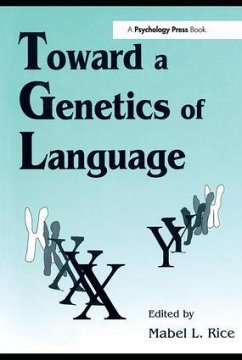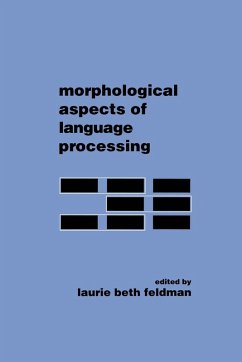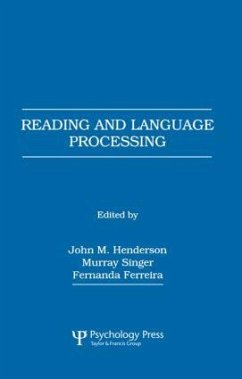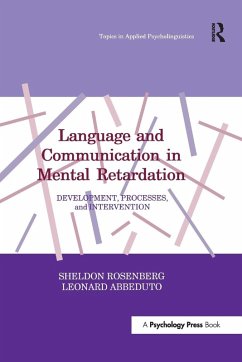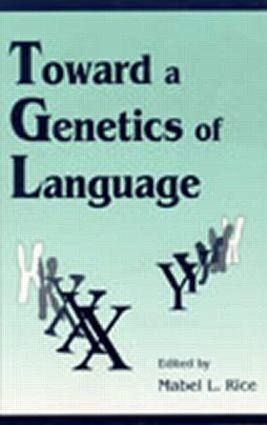
Toward A Genetics of Language
Versandkostenfrei!
Versandfertig in 1-2 Wochen
109,99 €
inkl. MwSt.

PAYBACK Punkte
55 °P sammeln!
The past decade has brought important new advances in the fields of genetics, behavioral genetics, linguistics, language acquisition, studies of language impairment, and brain imaging. Although these advances are each highly relevant to the determination of what a child is innately prepared to bring to language acquisition, the contributing fields of endeavor have traditionally been relatively self-contained, with little cross communication. This volume was developed with the belief that there is considerable value to be gained in the creation of a shared platform for a dialogue across the dis...
The past decade has brought important new advances in the fields of genetics, behavioral genetics, linguistics, language acquisition, studies of language impairment, and brain imaging. Although these advances are each highly relevant to the determination of what a child is innately prepared to bring to language acquisition, the contributing fields of endeavor have traditionally been relatively self-contained, with little cross communication. This volume was developed with the belief that there is considerable value to be gained in the creation of a shared platform for a dialogue across the disciplines.



